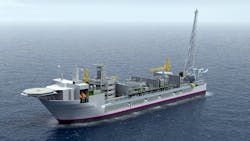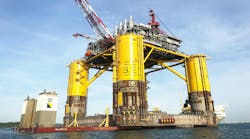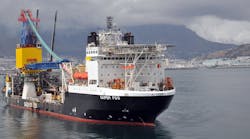Offshore staff
LONDON – Upstream operators are becoming concerned at the impact of the growing Coronavirus (COVID-19) epidemic on oil and gas demand and prices, according to Wood Mackenzie.
In the Far East, manufacturing shutdowns and shipping bottlenecks are causing project delays. Vessels and other large components under construction in affected shipyards have the most obvious potential for supply impact, although the volumes at risk are not material in global production terms, said head of Upstream Analysis Fraser McKay:
“For most operators, even if delays stretch to six months, the greatest impact is prevailing oil and gas prices.
“A three-month delay at the [FPSO-based] Johan Castberg development [in the Norwegian Barents Sea], would dent NPV10 by less than 1%. The effect of a 5% increase in remaining capex is approximately double that.
“However, a sustained Brent price drop of $10/bbl means $1 billion less cash flow per quarter for operator Equinor.
“Using Wood Mackenzie’s Lens Direct data, we calculate a $10/bbl change in price (the pull-back in Brent since January) has a $40 billion impact on global cash flow per quarter.”
Newbuild platforms are an issue, McKay said: “We estimate projects with peak capacity of 1.5 MMb/d and nearly 4 bcf/d are at risk of delay relative to our start-up estimates.
“A total of 2 MMb/d and 6 bcf/d is under construction across Southeast Asia.
“If delays do occur, an average of three months would only reduce 2022 production (the peak year of impact) by 160,000 b/d. A mere scratch on the surface of global supply. But if control of the disease takes a turn for the worse, the impact multiplies quickly.”
If virus containment efforts prove unsuccessful, production could be directly impacted at more producing assets in Southeast Asia and beyond, McKay claimed, with project delays lengthening and further component inventory tightening leading to cost effects globally.
02/27/2020





